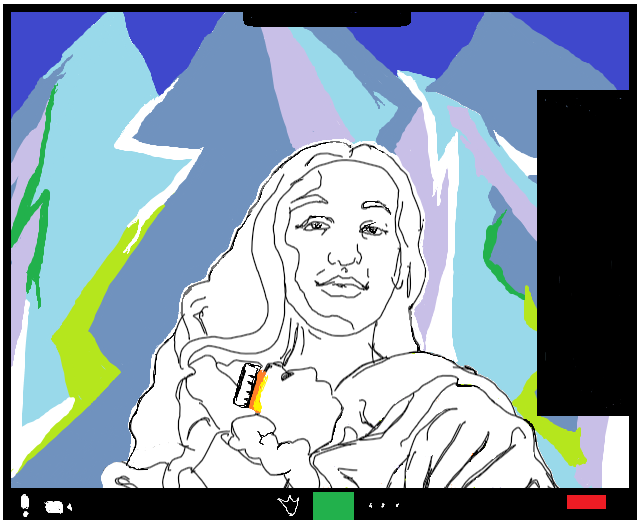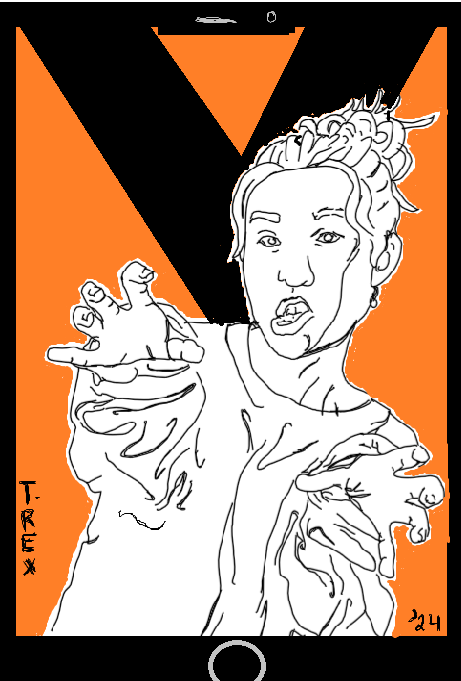“At 29,028 feet or nine kilometers above sea level, Mount Everest is the highest point on Earth. Thousands have tried to conquer the ascent to the summit. Hundreds have died trying.” Armed with my laptop, blanket, and antibiotics, I was ready to embark on my Outdoor Action experience. I never expected to climb Mount Everest just months after turning 18, not to mention while battling a tonsil infection, but Outdoor Action made it possible through teamwork, determination, and a new appreciation for the great indoors. The simulation promised we were just like real-world climbers, forcing us to consider our health, weather conditions, and even restricting communication to walkie-talkies. Still, I doubt summiteers track their health by watching a yellow bar slowly shrink (apparently my mental acuity was below normal), and I doubt Outdoor Action participants are able to pause the trip at their convenience.
When stripped to its core values, Outdoor Action’s purpose is to prepare first-year students for their start at Princeton by providing them with a support network, illustrating the importance of collaboration, and fostering a love for the outdoors. Cynicism and sarcasm aside, the Mount Everest simulation appears to uphold these three pillars. Though it was through Zoom, I learned a lot about the 11 other students in my group, their interests, insecurities, and shared nervousness to begin our virtual first semester. And I wouldn’t have been able to climb Mount Everest without them either. No, really—each team needed a leader, physician, photographer, marathoner, and environmentalist, all of whom worked in tandem to safely conquer the ascent. And while technically one could complete the entire curriculum from their bed (I can attest to this), we were encouraged to spend time outside and engage in “landfullness”, developing a connection with our environment.
Along with Outdoor Action, a number of other quintessential Princeton first-year experiences moved to a virtual setting. The first was Princeton Preview, which transformed into a website packed with information, webinars, meetings with current students and professors, and even virtual tours. Still, the majority of the site was pre-recorded, pre-written, and mainly shows how far we’ve come in creating an online experience. Clash of the Colleges moved to the GooseChase app, where students from each college answered trivia questions and completed challenges ranging from “film your best T-rex impression” to “what are your goals for the semester?” The President’s welcome, pre-read discussion, and other class meetings were done through Zoom webinars. Accompanying these Zooms was always the enlightening discourse in the infamous class GroupMe, which is essentially a group of students live-tweeting each meeting in exchange for red hearts and clout. Though I appreciate Princeton’s effort in checking the boxes of our first weeks as college students, it is impossible to develop a class dynamic online. Imagine you show up at college, but everyone is locked in their dorms and is only allowed to communicate via social media or distanced meetups based on their dorm location. For me, GroupMe used to be an annoyance—notifications off, groups muted. Now, it is the hub of class activity and communication.

On the surface, these first-year traditions appear wildly different from their in-person counterparts, and on a physical level, that is true. However, the purposes behind these events are partially maintained. Clash of the Colleges was still a competition between the residential colleges in which students participated in activities and still had a declared winner. Class meetings still informed us about the upcoming year, and students still read the pre-read (or still didn’t read the pre-read), exploring what it meant for us and for our futures.
But when a tradition is forced into a 1366 by 768-pixel box and projected around the world to students sitting by themselves, its outcome will never be the same, even if it holds the same intentions. Moving my finger around a trackpad does not equate to hiking through the Mid-Atlantic wilderness for a week, even if I do so while watching an icon move up the side of an artistically accurate mountain. Listening to my peers share personal stories seems impersonal online, and although we’ve been going through this unique experience together, we could not be physically farther apart. In a world where we are constantly receiving new notifications, all just a click away, our attention is pulled in countless directions, incessantly sought after. Can any of these in-person experiences truly be replicated virtually? Is my classmate listening to me while I’m speaking, or are they actually finishing the next episode of Avatar: The Last Airbender? There is no way for me to know. Though we may technically be attending these events at the same time (except for those in different time zones, those who are too busy, or those who just don’t care), the physical and often mental separation robs us of an apparent solidarity.
Arguably the most important first-year traditions we are missing, however, are those not advertised by the university, not found on the orientation calendar, not given highlight videos or websites. They are subtle: moving out for the first time, sharing a meal with someone you’ve never met, living in a new environment of diverse perspectives and histories. Though some students have been able to replicate these firsts, many of us are stuck in a wormhole between childhood and adulthood. The world is paused.
But the wormhole affords us a moment to reflect. As such a historic institution, Princeton is no stranger to long-standing traditions, some centuries old. Given how old these practices are, it is even more important to question why we have held them so tightly for so long. Many Princeton traditions have been discarded or significantly changed since their inception, such as Nude Olympics or Cane Spree. Nude Olympics was exactly what its name implies, but it stopped due to injuries, excessive alcohol consumption, and disputes with local police. Cane Spree started as a duel between freshman and sophomores, after sophomores hazed freshman for carrying walking sticks (a privilege reserved for older students), but evolved into a friendly competition between classes, including relay races and a barbecue. Reevaluation of historic practices has also invoked institutional change, like allowing female students in 1969, or, more recently, removing the name of the School of Public and International Affairs. Looking back, we can see glaring problems in all of these actions previously excused by habit.
Some traditions still exist today, or at least they did until March of this year, and each incoming class anticipates their chance to take part. Commencement Week, marking the end of the academic year, stretches graduation into a seven-day celebration of the graduating class, including Reunions, the P-rade, and Commencement itself. The parade through campus, in ascending class year until the senior class joins for the first time, is a visual representation of how much Princeton has evolved since the oldest alum. Without a reconsideration of the history and ideals a university rests upon, it is impossible to make such progress, and although Princeton is far from perfect, we should continue to question habits that seem ingrained in history. As we enter into a new school year, full of exciting traditions that represent a long-standing institution coupled with a set of challenges unique to a virtual campus, we can consider what is worth and deserving of preservation. Eating club dues, for example, are a minimum of $8,900 (with exceptions for RCAs), and though they offer meals and perks, they introduce a financial barrier to many students, not to mention the social structures these clubs may unwittingly reinforce. As a virtual first-year student, I have yet to receive my eating club baptism (dancing in a sweaty, dank basement to a song I don’t like with people I don’t know). Maybe my cynicism is borne out of jealousy, but is it entirely misguided? Again, I am only a first-year student and do not know the complete myriad of traditions associated with Princeton and its campus, basing my assumptions solely off of the horror stories and wistful memories of alumni.
Along with the possible disappointment of not experiencing the classic start to Princeton, the incoming class is also given an opportunity: to reevaluate what makes these traditions worthwhile, but also to reinvent them. Maybe the Step Sing will always be a Facebook Live event. Maybe Lawnparties will always be an $80,000 Zoom call. Or maybe, we can prove that college can and should be more accessible; that you don’t need a campus, just a laptop. Without a “way it used to be”, the Class of 2024 doesn’t have to be weighed down by the past while we build the future.


Leave a Reply